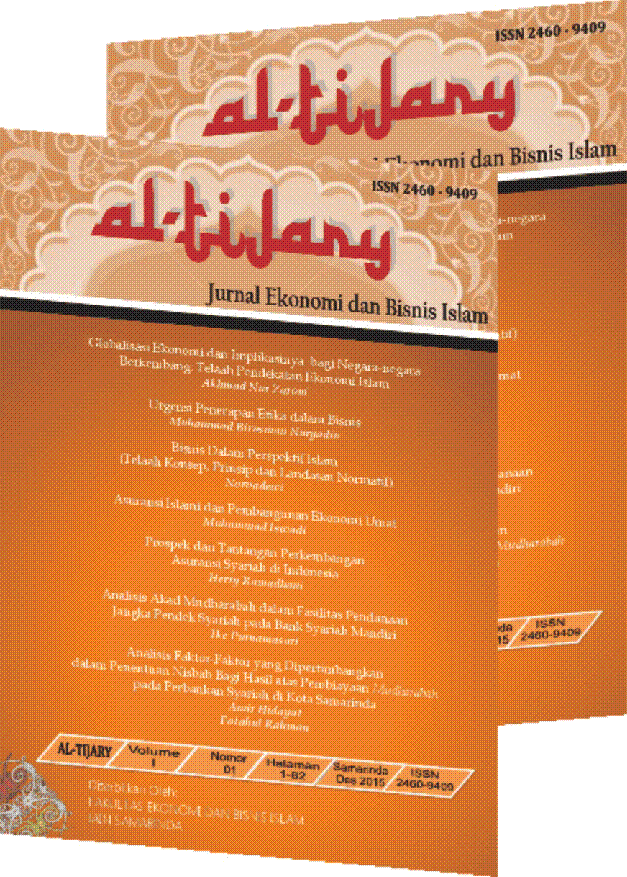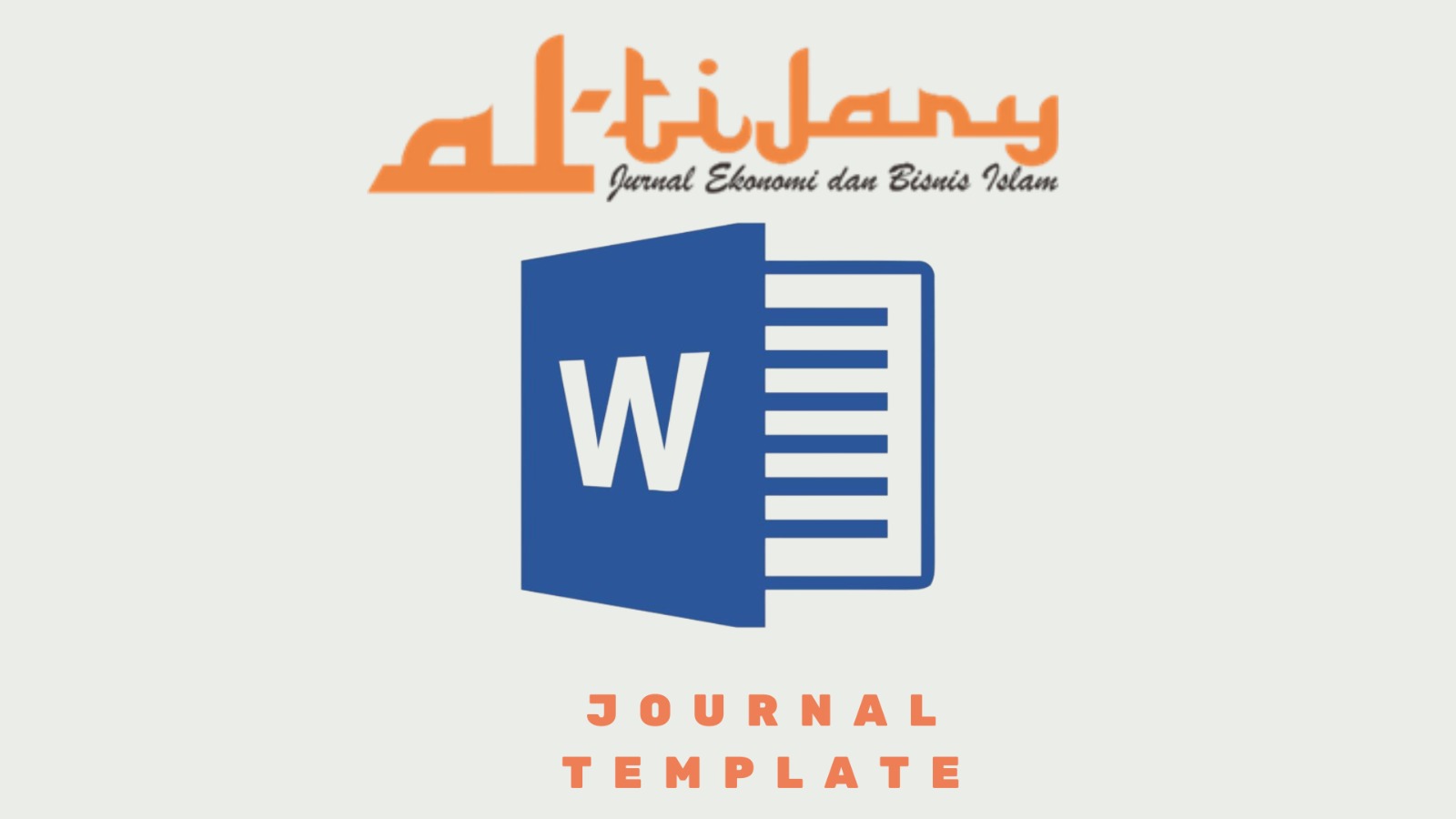Waqf Optimization in Aceh Province
Abstract
Aceh is noted to have extensive waqf land spread over 16,560 districts and cities with an area of 8,902.33 ha. Unfortunately, Aceh's waqf resources are relatively passive and have not been utilized optimally. Aceh even ranks as the poorest province in Sumatra, according to a release issued by BPS in 2020. Various waqf problems make the existing potential not adequately managed, even though if optimized, the benefits will be huge for the people of Aceh. For this reason, this study aims to investigate further waqf in Aceh Province so that it can be more optimal in its management and help improve the economy of the Acehnese people. This study uses a qualitative method where the data comes from a literature study obtained from good books, journals, articles, and websites. The results of this study indicate that the optimization of waqf in Aceh can work if stakeholders can improve overall community literacy, certify waqf land, provide guidance to waqf nadzir and make institutional improvements. With the advancement of these four things, it is believed that the potential of waqf in Aceh can be optimized and more productive to bring economic change to the people of Aceh. The implication of this research are recommends a major waqf literacy program, faster land certification, nadzir professionalism, and institutional reform of waqf management.
References
Abd Jalil, M. I., Yahya, S., & Allah Pitchay, A. (2019). Building committed Waqif: The role of information disclosure. Journal of Islamic Accounting and Business Research, 10(2), 185–215.
Abd Mutalib, H., & Maamor, S. (2018). Investigating issues and challenges in utilising waqf property. International Journal of Engineering & Technology, 4(4.19), 158–160.
Abidillah, A. F. (2022). Productive Waqf Model as an Alternative for Village-Owned Enterprises Business (BUMDs) Expansion. Ekonomika Syariah : Journal of Economic Studies, 5(2), Article 2.
Admin Diskominfo Aceh. (2021). Peningkatan Angka Kemiskinan di Aceh Masih Lebih Baik dari Rata-rata Nasional.
Agustyarsyah. (2021, January 15). Baru 6.724 Tanah Wakaf di Seluruh Aceh yang Bersetifikat, BPN Aceh: Prosesnya Sangat Mudah. Serambinews.Com.
Ahmad, A. A. (2021). Fifty-Seven Tracts: Shaybānī’s (d. 189/805) Aṣl/Mabsūṭ, Twelve Centuries On | American Journal of Islam and Society.
Ahwal, H. (2021). Wakaf Tunai Berbasis Crowdfunding: Persepsi Generasi Z & Y2015–. 17.
Ahyani, H., Slamet, M., & Tobroni. (2021). Building the Values of Rahmatan Lil ’Alamin for Indonesian Economic Development at 4.0 Era from the Perspective of Philosophy and Islamic Economic Law. Al-Ihkam: Jurnal Hukum & Pranata Sosial, 16(1), Article 1.
Akhlaq, S. K., Possumah, B. T., & Anwar, E. S. (2021). Analisis Strategi Pengelolaan Wakaf sebagai Bisnis Sosial Islam-Study Kasus Yayasan Wakaf Produktif Pengelola Aset Islami Indonesia. ILTIZAM Journal of Shariah Economics Research, 5(2), 127–145.
Alamsyah, I. F., Omar, A., & Sarif, S. M. (2022). Towards Conceptualising Islamic Community-Based Enterprise: Examination of Some Underlying Principles. Islamic Research, 5(1), Article 1.
Alfiah, E., Herawati, M., & Novitasari, R. (2020). Manajemen POAC Wakaf Di Indonesia. Ziswaf: Jurnal Zakat Dan Wakaf, 07(02), 118–132.
Ali, A. S. (2019). Analisis Pengelolaan Harta Waqaf Di Kota Banda Aceh. Akbis: Media Riset Akuntansi Dan Bisnis, 3(2).
Ali, K. M., Yuliani, M., Mulatsih, S., & Abdullah, Z. (2018a). Aspek-Aspek Prioritas Manajemen Wakaf di Indonesia. Al Falah: Journal of Islamic Economics, 03(01), 1–28.
Aliyu, S. U. R. (2019). Reflections on the Socioecomic Role of Waqf in an Islamic Economic System. IJUS | International Journal of Umranic Studies, 2(1), Article 1.
Anwar, A. (2020). Strategi Kolonial Belanda Dalam Menaklukkan Kerajaan Aceh Darussalam. Jurnal Adabiya, 19(1), 13–28.
Azrai Azaimi Ambrose, A. H., Gulam Hassan, M. A., & Hanafi, H. (2018). A proposed model for waqf financing public goods and mixed public goods in Malaysia. International Journal of Islamic and Middle Eastern Finance and Management, 11(3), 395–415.
Baiti, E. N., & Syufaat, S. (2021). Cash Waqf Linked Sukuk Sebagai Instrumen Pemulihan Ekonomi Nasional Akibat Covid-19. Jurnal Hukum Ekonomi Syariah, 4(1), 37.
Baitul Mal Aceh. (2021). Laporan Akuntabilitas Kinerja Instansi Pemerintah (LAKIP)/Laporan Kinerja (LKJ) Tahun 2020.
Choir, M., & Makhtum, A. (2021). Traditionalism Nazhir Kyai on Waqf Asset Development in Bangkalan Madura | Choiri | ZISWAF: JURNAL ZAKAT DAN WAKAF.
Diniyya, A. A. (2019). Development Of Waqf Based Microfinance And Its Impact In Alleviating The Poverty. Ihtifaz: Journal of Islamic Economics, Finance, and Banking, 2(2), Article 2.
Direktorat Pemberdayaan Zakat dan Wakaf. (2021). Jumlah Tanah Wakaf Wilayah Aceh.
Fadhilah, N. (2011). Sengketa Tanah Wakaf dan Strategi Penyelesaiannya. De Jure, Jurnal Syariah Dan Hukum, 03(01), 71–85.
Fatahillah, Z. (2019). Perlindungan Hukum Tanah Wakaf Yang Tidak Memiliki Sertifikat (Studi terhadap Putusan Wakaf di Mahkamah Syar’iyah Aceh). Kalam: Jurnal Agama Dan Sosial Humaniora, 07(01), 65–82.
Fauzi, R. Q., Hapsari, M. I., Herianingrum, S., Fanani, S., & Kurnia, T. (2022). The challenges of empowering waqf land in Indonesia: An analytical network process analysis. International Journal of Ethics and Systems, 38(3), 426–442.
Ghanny, A. R., & Fatwa, N. (2021). Indeks Literasi Wakaf Generasi Milenial. Jurnal Tabarru’: Islamic Banking and Finance, 04(01), 253–262.
Harahap, M. B. B., & Darwanto, D. (2021). Peran Strategi Badan Wakaf Indonesia (BWI) Dalam Meningkatkan Profesionalisme Nazhir Kota Semarang. TAWAZUN: Journal of Sharia Economic Law, 4(1), 104–120.
Hasan, P. P., & Shauki, E. R. (2022). Recommendations for collection and development strategy of waqf funds: A case study on waqf institutions. Jurnal Ekonomi & Keuangan Islam, 137–151.
Hasanah, U. (2012). Urgensi Pengawasan dalam Pengelolaan Wakaf Produktif. Al-Ahkam, 22(01), 61–79.
Hidayat, M. R., & Komarudin, P. (2020). Penyelesaian Sengketa Wakaf Melalui Jalur Litigasi Dan Non-Litigasi. Al-Adl: Jurnal Hukum, 11(2), 184–196.
Hidayatina, & Muhayatsyah, A. (2019). Overlaping Fungsi Baitul Mal dan Kantor Urusan Agama Sebagai Lembaga Pengelola Wakaf (Kritik Terhadap Peran Baitul Mal Sebagai Lembaga Pengelola Wakaf Di Aceh). Inferensi: Jurnal Penelitian Sosial Keagamaan, 13(02), 329–350.
Huda, M., & Santoso, L. (2022). Implementation of Corporate Waqf Core Principles in the Development of Waqf in Indonesia. Academic Journal of Interdisciplinary Studies, 11(5), Article 5. https://doi.org/10.36941/ajis-2022-0129
Iqbal, Z., & Mirakhor, A. (2013). Economic Development and Islamic Finance. World Bank Publications.
Jadalhaq, I. M., & Russi, L. (2020). Finding Direction at the Edge of Law and Life: Islamic Fiqh, Correspondence, and UAE Takāful Insurance Regulation. Canadian Journal of Law and Society / La Revue Canadienne Droit et Société, 35(3), 477–497.
Juniarsih, T. (2021). Pengaruh Produk Domestik Regional Bruto (Pdrb) Sektor Pertanian Di Aceh Terhadap Produk Domestik Regional Bruto (PDRB) Provinsi Aceh. Value, 1(2), 29–44.
Kashif, M., Faisal Jamal, K., & Abdur Rehman, M. (2018). The dynamics of Zakat donation experience among Muslims: A phenomenological inquiry. Journal of Islamic Accounting and Business Research, 9(1), 45–58.
Laallam, A., Kassim, S., Engku Ali, E. R. A., & Saiti, B. (2020). Intellectual capital in non-profit organisations: Lessons learnt for waqf institutions. ISRA International Journal of Islamic Finance, 12(1), 27–48.
Lamido, A. A., & Haneef, M. A. (2021). Shifting the paradigms in waqf economics: Towards renewed focus on socioeconomic development. Islamic Economic Studies, 29(1), 18–32. https://doi.org/10.1108/IES-04-2021-0014
Lubis, R. H., & Latifah, F. N. (2019). Analisis Strategi Pengembangan Zakat, Infaq, Shadaqoh dan Wakaf di Indonesia. Perisai: Islamic Banking and Finance Journal, 3(1), 45–56.
Mahrus, M. (2021). Settlement of Waqf Disputes and its Asset Protection in East Java, Indonesia. Mazahib, 20(2), Article 2.
Manyamsari, I. (2019). Pengembangan Komoditas Unggulan Perkebunan Berbasis Modal Sosial dan Peluang Investasi di Aceh. Jurnal Penelitian Agrisamudra, 6(1), 1–12.
Maulana, H., Iski, N., & Pratama, A. P. (2019). Regionalisasi Wakaf Tanah di Provinsi Aceh: Suatu Telaah Pemetaan dan Kebijakan. Al Muzara’ah, 07(02), 41–55.
Maulina, R. (2022). Factors Influencing the Success of Retail Cash Waqf Linked Ṣukūk (CWLS) Issuance: A Lesson from Indonesia العوامل المؤثرة في نجاح إصدار صكوك التجزئة المرتبط بالوقف النقدي (CWLS): درس من إندونيسيا. Journal of King Abdulaziz University: Islamic Economics, 35(1), 57–74.
Maylor, H., Blackmon, K., & Huemann, M. (2017). Researching Business and Management. Bloomsbury Publishing.
Mukhalad, W. (2020). Problematika Pengelolaan dan Pengembangan Tanah Wakaf (Studi Kasus di Kecamatan Meureubo Kabupaten Aceh Barat). Tadabbur: Jurnal Peradaban Islam, 02(02), 219–231.
Nurdin, N. (2020, September 8). Sertifikasi Tanah Wakaf di Aceh Besar Gratis, Pihak Gampong Diimbau Buat Akta Ikrar Wakaf. Serambinews.Com.
Oseni, U. A., & Ali, S. N. (2019). Fintech in Islamic Finance: Theory and Practice. Routledge.
Perdi, P. F. R., & Stianto, A. (2020). Potensi Wakaf Di Indonesia (Kontribusi Wakaf Dalam Mengurangi Kemiskinan). Malia (Terakreditasi), 12(1), 79–94.
Pikoli, Y., Rachman, B. R., & Yasin, W. (2021). Nadzir’s Role in the Management of Waqf Mosque Land in Bone Bolango Regency, Indonesia. Talaa: Journal of Islamic Finance, 1(1), 46–55.
Pratikto, H., Taufiq, A., Voak, A., Deuraseh, N., Nur, H., Dahlan, W., & Purnomo, A. (2021). Halal Development: Trends, Opportunities and Challenges: Proceedings of the 1st International Conference on Halal Development (ICHaD 2020), Malang, Indonesia, October 8, 2020.
Purwaningsih, S., & Susilowati, D. (2020). Peran wakaf dalam meningkatkan pemberdayaan ekonomi umat. Jurnal Ekonomi, Bisnis, Dan Akuntansi, 22(2), 191–203.
Pusat Studi Agraria IPB. (2020). Mengembangkan Wakaf Agraria di Aceh. PSA IPB.
Quasem, M. A. (2023). Salvation of the Soul and Islamic Devotion. Taylor & Francis.
Qurrata, V. A., Yusida, E., Hussain, N. E., Merlinda, S., Purnamasari, V., & Seprillina, L. (2021). Effectiveness of cash waqf management in improving community welfare: Challenges and opportunities. Review of Integrative Business and Economics Research, 10, 342–359.
Ramadhan, T. (2020). Pengelolaan Wakaf Produktif dalam Mewujudkan Kesejahteraan Masyarakat di Kota Banda Aceh. Tesis. Institut Ilmu Al-Qur’an (IIQ) Jakarta.
Rangkuti, R. P., Ketaren, A., & Ridwan, D. (2020). Modal Sosial dan Kearifan Lokan dalam Pengelolaan Hutan: Studi Kasus di Kawasan Hutan Gampong Kunci Kecamatan Sawang Kabupaten Aceh Utara. Jurnal Sosiologi USK (Media Pemikiran & Aplikasi), 14(2), 163–180.
Roestamy, M., & Rahmawati, R. (2018). Model Pengembangan Paradigma Masyarakat Bagi Kepemilikan Rumah yang Terpisah Dari Tanah. Mimbar Hukum, 30(02), 331–345.
Rohman, A. A. (2021). Pengaruh Religiusitas, Pengetahuan, Perspesi, Pendapatan, dan Media Infromasi terhadap Minat Wakaf Uang Masyarakat Kota Bandung. Jurnal Riset Ilmu Ekonomi Dan Bisnis, 136–144.
Safi, L. M. (2021). Islam and the Trajectory of Globalization: Rational Idealism and the Structure of World History. Routledge.
Saptono, I. T. (2020). Laporan Hasil Survey Indeks Literasi Wakaf 2020.
Selasi, D. (2021). Membangun Negeri Dengan Wakaf Produktif. Tawazun: Journal of Sharia Economic Law, 4(1), 84–103.
Suhendi, H. (2018). Optimalisasi Aset Wakaf Sebagai Sumber Dana Pesantren Melalui Pelembagaan Wakaf (Studi Kasus Pelembagaan Wakaf Pesantren Baitul Hidayah). Tahkim: Jurnal Peradaban Dan Hukum Islam, 01(01), 1–20.
Sukarmi, S., & Victoria, A. (2018). Cash Waqf in Sustaining Of Indonesian Society “In Legal & Economic Perspective.” Al-Itqan: Journal Of Islamic Sciences And Comparative Studies, 2(1), Article 1.
Syamsuri, S., Lahuri, S. bin, Bakri, W., Fatoni, A., & Wibowo, H. S. (2021). Strategy for Improving the Quality of Waqf Institutions Through Good Waqf Governance. Al-Iktisab: Journal of Islamic Economic Law, 5(1), Article 1.
Thaib, M. (2018). Pengelolaan wakaf tanah produktif di kota Banda Aceh. Jurnal Aktualita, 1(2).
Wicaksono, S. (2020). Pentingnya Literasi Zakat Wakaf untuk Generasi Milenial.
Widiastuti, T., Robani, A., Sukmaningrum, P. S., Mawardi, I., Ningsih, S., Herianingrum, S., & Al-Mustofa, M. U. (2022). Integrating sustainable Islamic social finance: An analytical network process using the benefit opportunity cost risk (ANP BOCR) framework: the case of Indonesia. Plos One, 17(5), e0269039.
Wulandari, D. (2022). Manfaat Wakaf Dan Permasalahannya. Jurnal Ilmiah Ekonomi, Manajemen Dan Syariah, 1(3), Article 3. https://doi.org/10.55883/jiemas.v1i3.4
Wulandari, S., Effendi, J., & Saptono, I. T. (2019). Pemilihan Nazhir dalam Optimalisasi Pengelolaan Wakaf Uang. JABM: Jurnal Aplikasi Bisnis Dan Manajemen, 05(02), 295–307.
Zamzami, D. Y. (2021, February 17). Aceh Kembali Termiskin di Sumatera, Pengamat Sebut karena Salah Kelola Anggaran. Kompas.Com.








